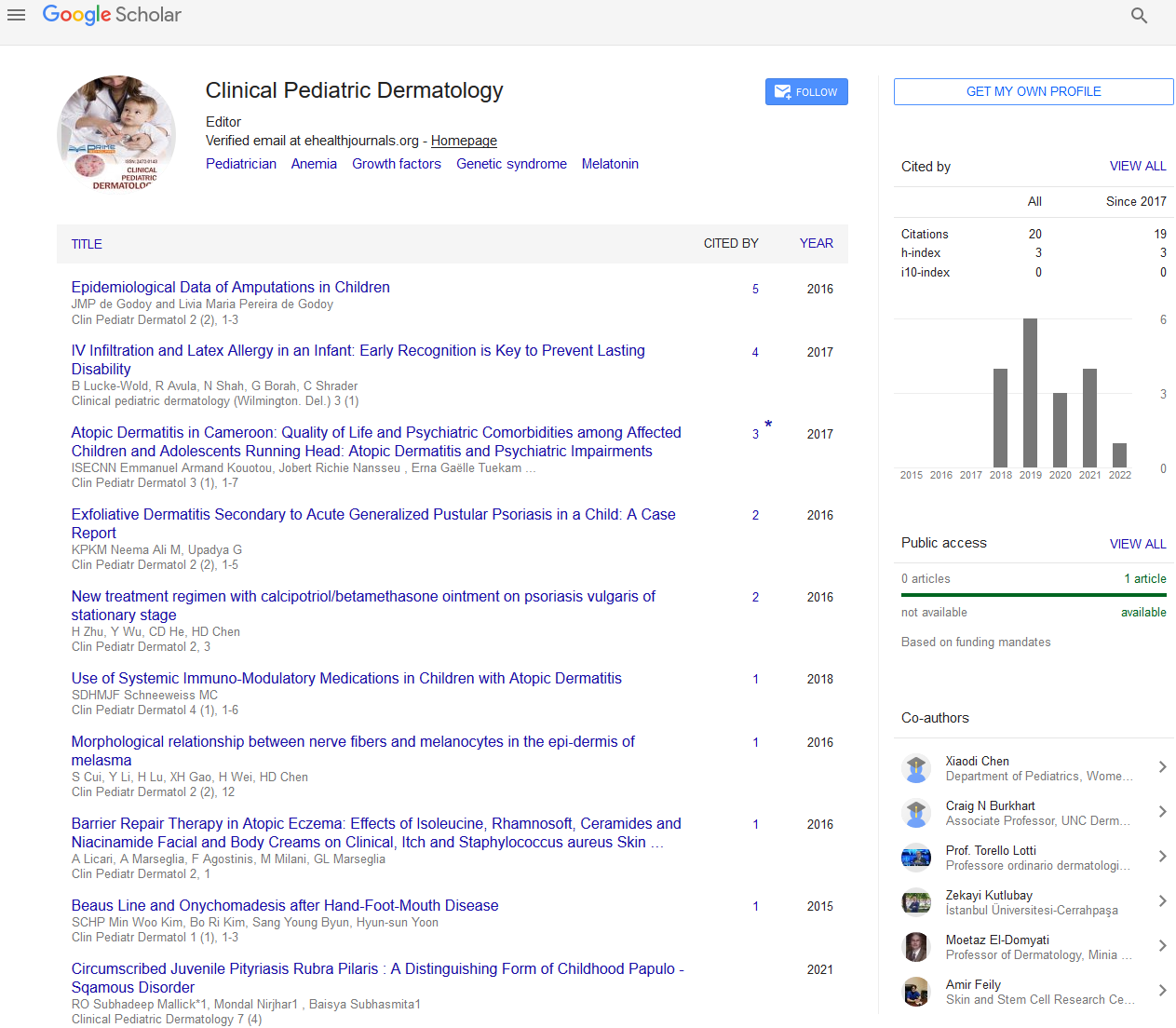Perspective Article - (2022) Volume 8, Issue 6
Ultraviolet Radiation May Alter the Course and Severity of Skin Tumors
Ying Huang*
Department of Pharmaceutical Sciences, University of Health Sciences, United States
*Correspondence:
Ying Huang,
Department of Pharmaceutical Sciences, University of Health Sciences,
United States,
Email:
Received: 30-Nov-2022, Manuscript No. IPCPDR-23-15489;
Editor assigned: 02-Dec-2022, Pre QC No. IPCPDR-23-15489 (PQ);
Reviewed: 16-Dec-2022, QC No. IPCPDR-23-15489;
Revised: 21-Dec-2022, Manuscript No. IPCPDR-23-15489 (R);
Published:
28-Dec-2022, DOI: 10.36648/2472-0143.22.8.030
INTRODUCTION
The skin uses sunlight to produce vitamin D, which is important for
normal bone formation. However, there are drawbacks. The outer
layer of the skin contains cells that contain melanin pigment. Melanin
protects the skin from the sun’s ultraviolet rays. These burn
the skin and reduce its elasticity, leading to premature aging of the
skin. People get tans because sunlight causes the skin to produce
melanin, which darkens it. The tan disappears as new cells migrate
to the surface and the tanned cells are sloughed off. Some sunlight
can be good as long as you are properly protected from overexposure.
But too much UV or UV radiation can cause sunburn.
Description
Ultraviolet rays penetrate the outer layers of the skin and hit the
deeper layers of the skin, where they damage or kill skin cells.
You can protect yourself by covering sensitive areas, wearing sunscreen,
limiting total exposure time, and avoiding the sun between
10 am and 2 pm. It is frequent exposure to UV rays over many
years. Check your skin regularly for suspicious growth or other skin
changes. Early detection and treatment are important for the successful
treatment of skin cancer. Ultraviolet (UV) radiation is a type
of electromagnetic radiation that comes from the sun and artificial
sources such as tanning beds and welding torches. Radiation is
the release (emission) of energy from any source. There are many
types of radiation, from very high energy (high frequency) radiation
such as X-rays and gamma rays to very low energy (low frequency)
radiation such as radio waves. Ultraviolet is in the middle of
this spectrum. There are different types of UV rays depending on the strength of their energy. High-energy ultraviolet light is a type
of ionizing radiation. This means it has enough energy to remove
(ionize) an electron from an atom or molecule. Ionizing radiation
can damage DNA (genes) in cells, which can result in cancer. However,
even the most energetic UV rays do not have enough energy
to penetrate deep into the body, so the main effect is on the skin.
Chronic exposure to UV light causes many degenerative changes in
skin cells, connective tissue, and blood vessels. These include freckles,
nevus, and lentigo, which are pigmented areas of the skin, and
diffuse brown pigmentation. UV rays accelerate the aging of the
skin, gradually losing elasticity, and causing wrinkles, dry skin, and
rough skin. Low levels of UVR are beneficial to health and play an
important role in the production of vitamin D. However, excessive
exposure to UVR is associated with adverse health effects as it is
carcinogenic to humans.
Conclusion
Other types of eye damage include pterygium (growth of tissue
that can interfere with vision), skin cancer around the eye, and
degeneration of the macula (the part of the retina where vision
is strongest) All of these problems can be mitigated by protecting
your right eye. If you wear them, look for sunglasses, glasses, or
contact lenses that offer 99%-100% UV protection. Scientists have
found that excessive UV exposure can suppress the proper functioning
of the body’s immune system and the skin’s natural defenses.
It provides protection against foreign intruders However; too
much UV exposure can weaken your immune system and reduce
your ability to protect your skin from these invaders.
Citation: Huang Y (2022) Ultraviolet Radiation May Alter the Course and Severity of Skin Tumors. Clin Pediatr Dermatol. 8:030.
Copyright: © 2022 Huang Y. This is an open-access article distributed under the terms of the Creative Commons Attribution License,
which permits unrestricted use, distribution, and reproduction in any medium, provided the original author and source
are credited.

